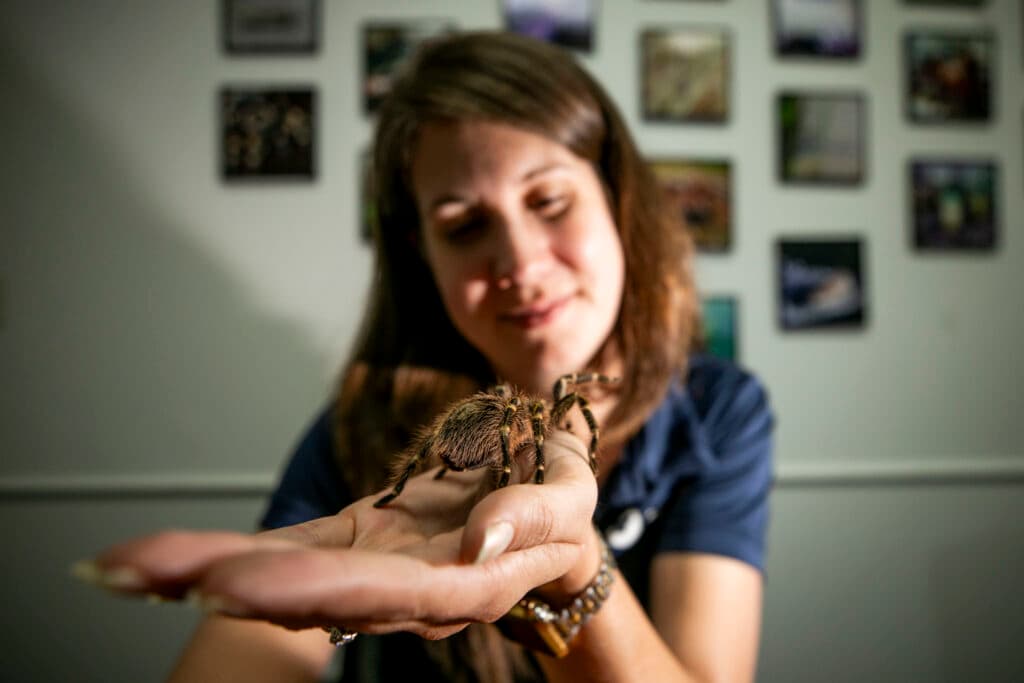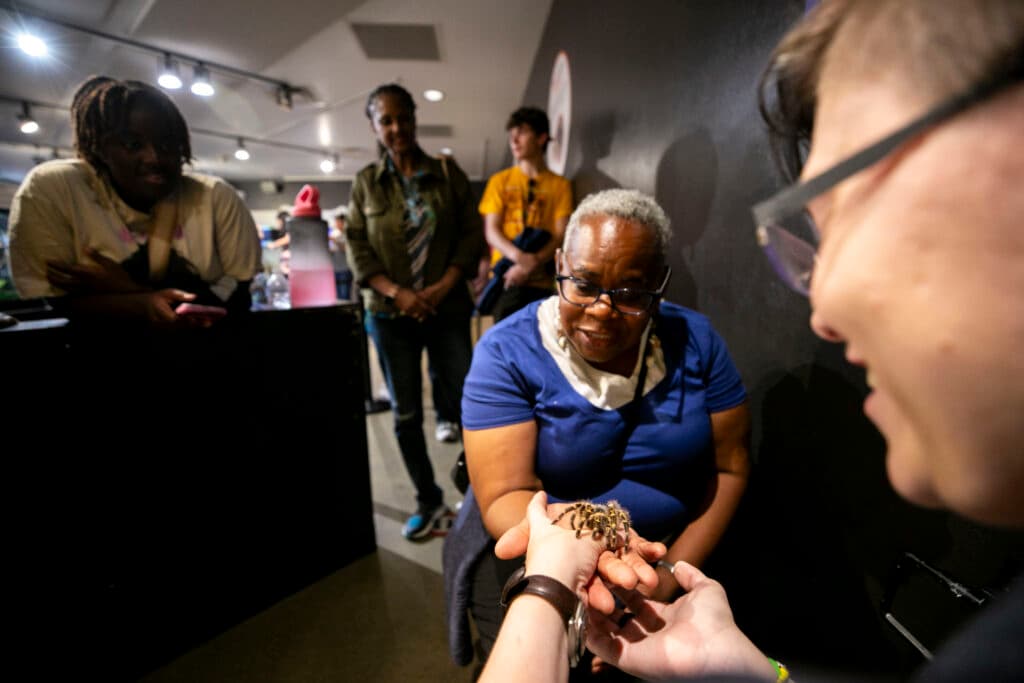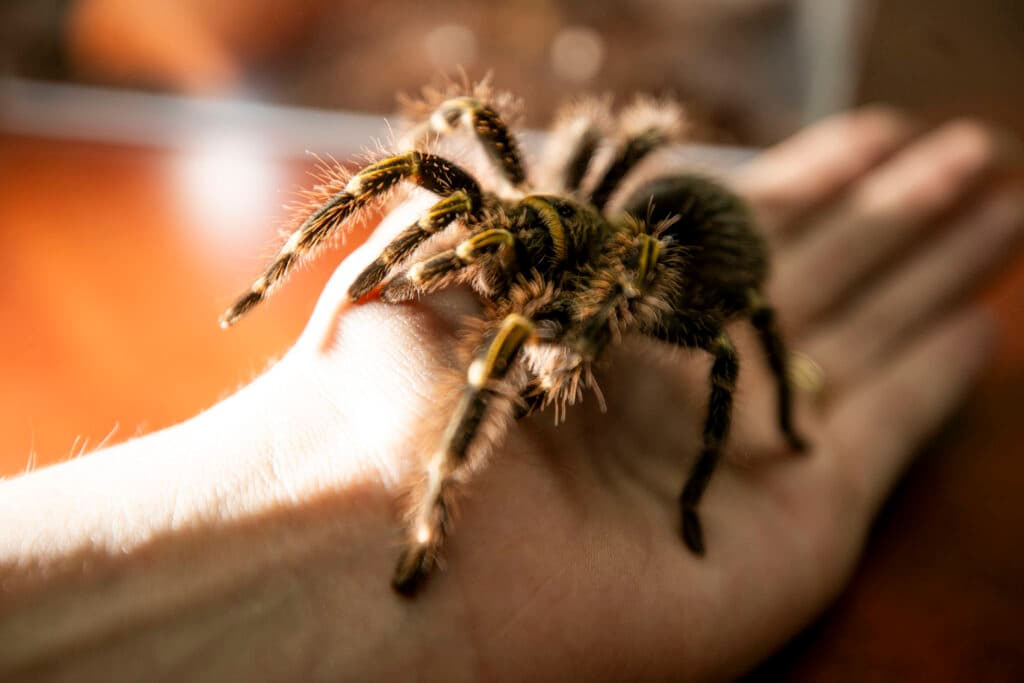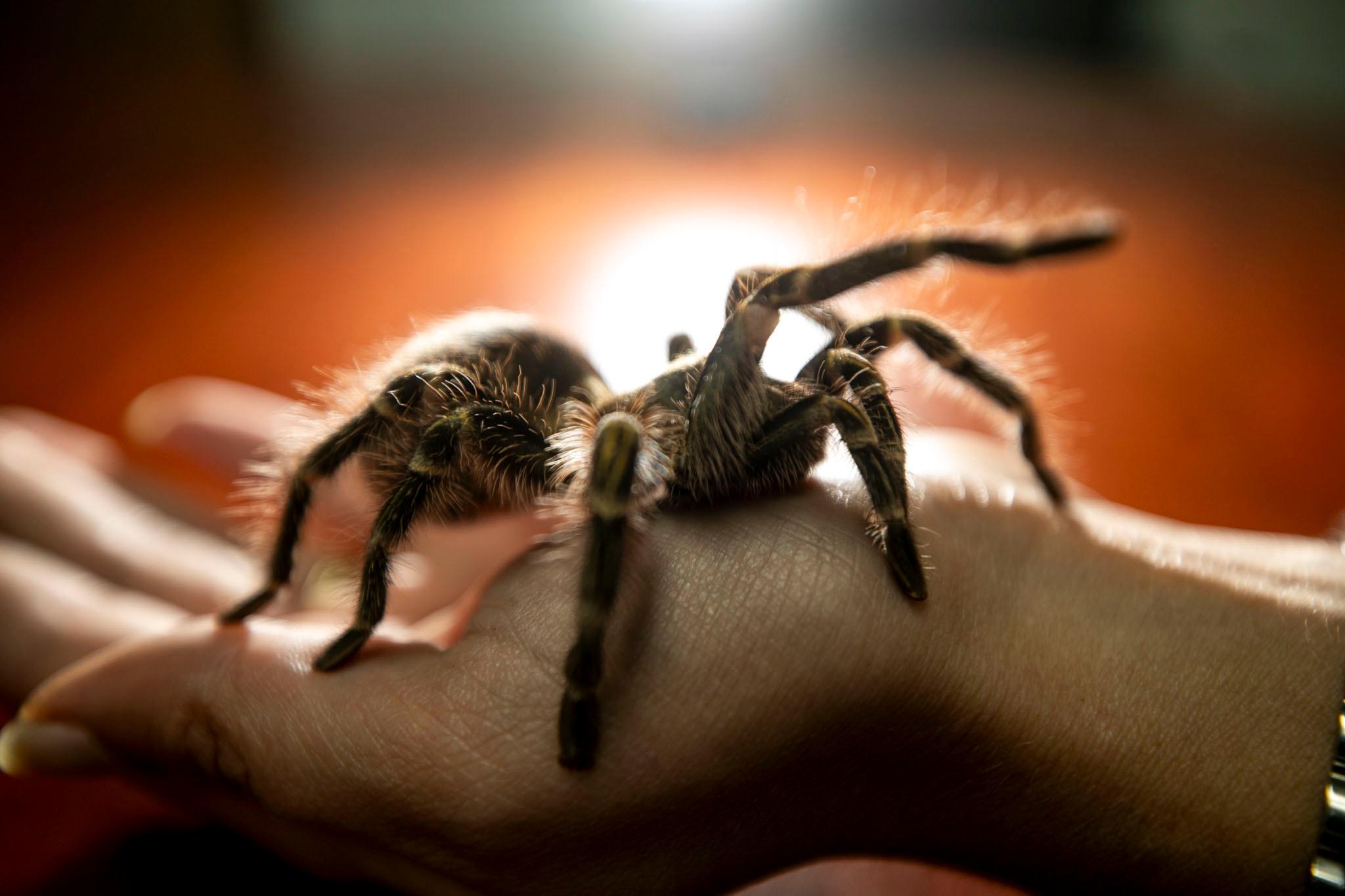The story goes like this: There’s a Chilean rose hair tarantula that you and your kids can hold at Butterfly Pavilion. She comes from the Atacama Desert in Chile. Her name is Rosie the Tarantula. She’s an arachnid ambassador.
We visit her, leave, return, and think we’re seeing the same spider again — an old friend, a reliable veteran of the invertebrate community.
In an institution filled with countless magnificent butterflies, she’s the only creature most of us know by name. She’s a star.
Along with Frank ¨the Strong Arm¨ Azar, Peyton Manning, Nikola Jokic, Kyle Clark and Blucifer, she´s one of the few Denver-famous characters around — even if she’s really in Westminster.

But unlike the Strong Arm or Joker, there’s more than one of Rosie.
Sara Stevens, Butterfly Pavilion’s director of animal relations, estimates there have been 140 tarantulas playing Rosie since she was first introduced to the pavilion in 1995.
Rosie’s kind of like a shopping mall Easter Bunny: They all seem the same, but not really. The spider in your hand is a mere actor, one who will play her part, retire and eventually die.
The arachnids playing Rosie the Tarantula at Butterfly Pavilion may have the best job in the metro. They only work two hours every seven days.
“We do put a lot of effort into making sure that the animals we're working with have choice,” Stevens said. “And if they no longer want to be ambassador animals, which they tell us through behavior cues and things like that.”
That’s important. Because the spiders are often handled by people who are nervous to touch their first eight-legged friend.
And just like how guests can be nervous, so can tarantulas.
Some spiders stop walking on guests' hands. Others start kicking hairs, porcupine-style, causing mild irritation to the skin. The hairs can be easily removed with a piece of tape.
Happily, Rosies don’t bite.

If Rosies start showing signs of burnout, they get a break. If they don’t go happily back to work, they are rotated out of the program.
And no, “rotated out of the program,” is not a euphemism for putting them down.
They go serve other functions within Butterfly Pavilion’s collection. Some are sent to other animal collections, including zoos, nationwide.
“People all along the Front Range, all throughout Colorado, love Rosie,” Stevens said. “I get stopped in grocery stores sometimes if I'm wearing my name tag on my shirt, and they’ll be like, ‘Oh, 10 years ago, I held Rosie.’ You know, I think that's something we take for granted here, that so many people have an amazingly positive relationship with the tarantula.”
What’s the point of the ambassador animals?
People are often irrationally afraid of spiders. Butterfly Pavilion wants to help people realize not all eight-legged creatures pose a danger. Not even all furry and fear-inspiring tarantulas.
“One of the goals of Butterfly Pavilion is really fostering that appreciation and respect for invertebrates,” Stevens said. “And what Rosie does is Rosie makes it so kids are excited about a giant spider as opposed to being afraid of one. “
And in Denver, there’s not a huge reason to be scared of arachnids. The spiders Denverites encounter, in general, are not particularly deadly. Many, like jumping spiders, are downright friendly.
Black widows do live here, but they are largely afraid of people and rarely bite. Even when they do, they generally don’t do much damage. Stevens said nobody has died from a black widow bite since the 1980s.
Now, a new spider is coming to town, and it doesn’t have a name yet.
The new tarantula is a Chaco golden knee, a cousin of Rosie found in the grasslands of Argentina and Uruguay.
“The Chaco golden is a little bit more willful than Rosie, but still very sweet, very calm,” said Stevens. “They just have a little bit of an attitude sometimes.”

So what does that attitude look like?
Unlike Rosie, the Chaco golden doesn’t always walk onto somebody’s hands. They sometimes climb up an arm or spin around.
Even so, “our guests have loved the experience,” Stevens said.
Now, Butterfly Pavilion is working on naming the new spider. They need your help.
Can that newbie compete in name recognition with Rosie? That’s yet to be seen.
Unfortunately, guests cannot submit their own names. But there are three to choose from: Goldie, Chaco and Oro.
You can vote for your favorite here. You have until Sunday, July 28, to do so.













